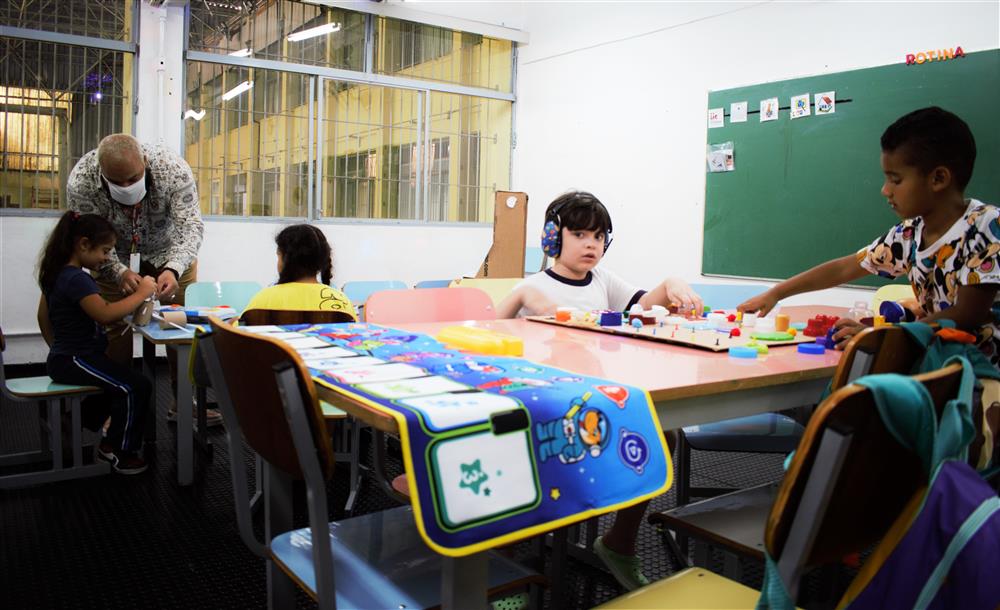Comprehensive after-school programme supporting children with intellectual disabilities to attend mainstream classes
- Solution
- Specialized Educational Assistance Centre (SEAC)
- Country of Implementation
- Brazil
- Start Year
- 2011
- First published
- 03.12.2023

Solution details
“We research heavily in all areas to promote the inclusion of people with intellectual disabilities. Inclusive education is an issue that needs to be addressed by everyone.” RoselI Olher, Inclusion Educational Service Supervisor, Jô Clemente Institute
Instituto Jô Clemente, a large national NGO and service provider based in São Paulo, Brazil, runs the Specialized Educational Assistance Centre (SEAC) project. It supports access to regular education for pupils with intellectual disabilities and Autism Spectrum Disorder. SEAC provides learning sessions in well-equipped rooms, uses accessible pedagogical resources, and offers training sessions for teachers and support for families. Between 2011 and 2023 the project has grown significantly, assisting over 320 children and teenagers with disabilities in 2022.
Problems Targeted
There is a need for greater dialogue with schools and teachers regarding pupils with intellectual disabilities to ensure continued teacher training and the alignment of educational strategies that enhance school learning.
Solution, Innovation and Impact
The Specialized Educational Assistance project is an after-school support service that empowers students with disabilities and Autistic Spectrum Disorder to join and stay in mainstream schools and classes. Upon arriving at Instituto Jô Clemente students go through an assessment process to identify their abilities as well as any barriers that may hinder their full participation within school and the social context. Based on this assessment, an Individual Assistance Plan is created for every student. SEACs provide students with pedagogical resources customized to their needs. Training takes place in well-equipped rooms, including logical-mathematical thinking games, sensory stimulating games, board games, electronic games, didactic books, musical instruments, musical toys, oral and written language games, educational software, and assistive technologies. For instance, logical-reasoning games are used to train students to name, to visually discriminate, to perform correspondences, and to acquire preschool concepts such as size, weight, shape, colour, and quantity. For the development of attention and for the understanding of rules, students use board games. At the same time, teachers are trained – using accessible pedagogical resources and video recorded training sessions – on the topics of inclusive education, available also at the institute’s website. The institute currently runs four units and supports 320 children and teenagers.
Funding, Outlook and Transferability
Instituto Jô Clemente is funded by city, state, and national governments based on a five-year contract, which may be renewed after those five years. Currently, it is conducting consultancy for a specific school in the city of Piracicaba (in the countryside of the State of São Paulo), where it is planning to replicate its model. (Awardee 2024)
Media
Pictures
Related information
- Connections
- 1
-
People